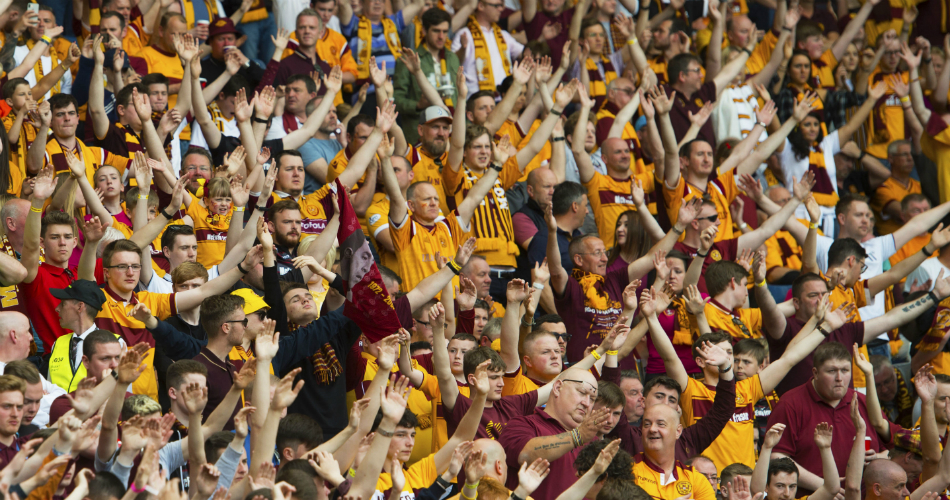In Scotland we have seen a great surge of wealth in football and following this we have also seen catastrophic turmoil, which has come from crooked chairmen with huge egos overspending. In the early 2000’s, we saw a surge in spending from teams such as Livingston, Motherwell, Dundee, and Rangers. This brought short term happiness for the supporters, but long term misery as the teams faced administration by poor management. These clubs were close to going to the wall but all have bounced back in time.
Out of those four clubs that suffered from administration only Motherwell have taken up fan ownership. The fan-led campaign ‘The Well Society’ existed to bring the club under fan ownership and bought over the former controlling shareholder Les Hutchinson’s shares. As a result the supporters now own over 70% of the club. The best interests of the club are in the hands of the fans, not in the hands of private owners where the fans have no say in decisions about a club they have supported and sometimes been a part of families lives for generations. Another two clubs in the Scottish top flight have followed the fan ownership route and those clubs are Hearts and St Mirren. This is a show of great fan leadership in those team’s supporters in wanting the club to be led by the fans themselves.
Hearts are the largest fan-owned club in Britain with the supporters owning over 75% of the shares. This is a massive step in the right direction for Scottish Football, because if you looked at where Hearts were heading ten years ago under the ownership of Vladimir Romanov and were a betting man, you would place a bet on them being liquidated under his ownership. Romanov getting the club into over £30 millions pounds of debt all for his vanity project to fall straight on its face was criminal. Football is more than just a game, it’s the community of that region coming together to share the highs of winning a cup and even the lows of fighting a relegation battle.
Hopefully most of the other Scottish teams will follow suit because it’s the best model for the fans themselves. For example, Motherwell gave all their season ticket holders from the 2020/2021 season a free season ticket for the upcoming season. This hasn’t been seen at the boards of the richest clubs in the country with Celtic and Rangers – the big-business clubs who have held onto their supporters’ money for the 2020/2021 season and had closed doors for the supporters due to the covid-19 pandemic. Working-class fans pay to watch their team in a stadium and only get a stream online from the clubs but without any refund on their season ticket is a truly scandalous act by those clubs against their supporters. However, The Well Society at Motherwell took another route. To apologise for not being allowed to let supporters in the stadium due to the pandemic, Motherwell have given the season ticket-holders of the 2020/2021 season a free season ticket for the following season – this is an example of what fan-ownership can do for the supporters and for the local community.
Our footballing neighbours south of the border have accumulated so much wealth from TV deals, from BT, Sky Sports, and other sponsorships. The English Premiership and even the Championship have astronomical wealth in comparison to the Scottish game, and it’s seen as something that the Scottish fans should be jealous of, as most of these clubs have lost their identity in their towns and cities. For instance, Newcastle United’s previous owner and current owners are not something to be admired. The previous owner Mike Ashley who is a Retail tycoon famous for his ill treatment of his workers at Sports Direct, with the horrendous working conditions, zero hours contracts and poverty wages for the workers to endure. Then you look at their new owners, the Public Investment Fund of Saudi Arabia (PIF). The PIF have direct links to the Saudi state, which is guilty of hideous human rights abuses against their people, especially women. There is, however, an alternative and Scottish should not be envious of English football for all the money they have when these are the sources of the money funding local clubs.
This alternative, this has been seen In Paisley, St Mirren have taken their first steps into fan ownership with the controlling shareholders being the St Mirren Independent Supporters Association (SMISA) with a 51% share. Just over the threshold but a step in the right direction. St Mirren’s local rivals have also taken the route of fan ownership. Greenock Morton are based in the Scottish second tier and they are the newest team to adopt this model of fan ownership. The Morton Club Together (MCT) own just under 90% of shares and is the highest percentage of fan ownership by some distance.
Fan ownership is the only means of truly reclaiming football clubs back into the hands of their local working-class communities.
Gary Steele, is a member of the YCL’s Glasgow branch



